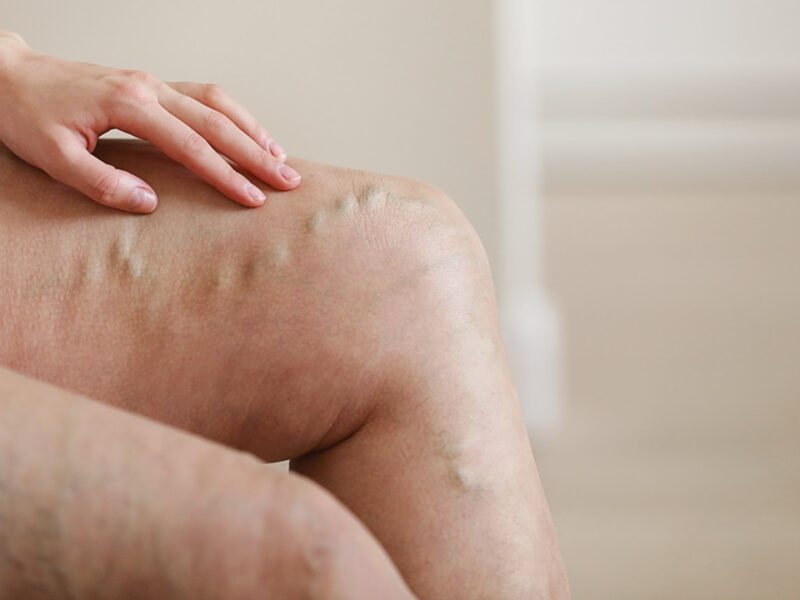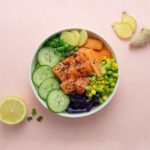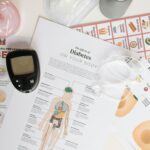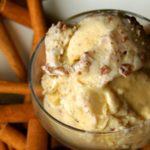Introduction: Nutrition and Vein Health
Healthy veins are essential for proper circulation, helping move blood throughout the body. When they fail, conditions like varicose veins may develop, leading to discomfort and other complications. Knowing how to care for your veins is an integral step toward better overall health.
Nutrition plays an essential part in supporting vein health. Particular nutrients help preserve vein elasticity, reduce inflammation, and enhance blood flow; for instance, foods rich in antioxidants and omega-3 fatty acids have long been known to boost circulation.
In some cases, lifestyle changes alone may not be enough to manage vein problems. For advanced conditions, seeking professional vein care can provide effective solutions to improve circulation and address discomfort. Combining medical treatment with a vein-friendly diet is key to achieving and maintaining healthy veins.
This article will explore foods that promote better circulation, dietary habits to avoid, and tools to support your wellness goals.
How Poor Circulation Impacts Vein Health
Poor circulation can put immense strain on your veins, weakening them over time. When blood doesn’t flow efficiently through your veins, it pools in them, causing increased pressure to build up in them and, over time, resulting in varicose or spider veins forming, discomfort, and visible changes occurring, impairing overall health and mobility.
Inflammation and oxidative stress are major contributing factors to vein disease. Oxidative stress occurs when there is an imbalance between free radicals and antioxidants in your body, leading to damage in veins and surrounding tissues. According to research published in PMC, oxidative stress significantly contributes to vein-related diseases by weakening vein walls and reducing their functionality.
Poor eating habits, including eating food that contains processed sugars and unhealthy fats, can also have adverse effects on circulation. Consuming such items increases inflammation and can eventually damage vein health over time.
A diet rich in fruits, vegetables, whole grains, and omega-3 fatty acids can provide relief. Nutrition can improve blood flow, decrease inflammation, and strengthen veins. By adopting healthier eating habits, you can reduce the risk of vein-related problems while supporting better circulation.
Vein-Friendly Foods: What to Eat for Better Circulation
Certain foods are proven to help improve blood circulation and strengthen veins, helping support vein health and reduce the risk of varicose veins. Here are some great vein-friendly options you should include in your meals.
a) Antioxidant-Rich Foods
Foods rich in antioxidants help to combat inflammation and protect veins from damage, like blueberries, raspberries, strawberries, and spinach containing flavonoids to strengthen blood vessels; spinach provides important circulation-supportive nutrients, while citrus fruits like oranges, lemons, and grapefruits provide vitamin C, which boosts circulation as well as vein health. According to Healthline’s guide on foods that increase blood flow, antioxidants play a crucial role in improving circulation and reducing inflammation.
b) Omega-3 Fatty Acids
Omega-3 fatty acids help blood flow by decreasing viscosity and making it easier for the heart to pump blood through veins. Fatty fish such as salmon, mackerel, and tuna are rich sources of omega-3s, while walnuts and flaxseeds can support vein health. Including these foods in your diet will have a noticeable impact on circulation.
c) Vitamin C-Rich Foods
Vitamin C is essential to collagen production, keeping veins elastic and strong. Foods rich in vitamin C, such as bell peppers, oranges, and kiwis, provide regular doses that can prevent vein walls from weakening, thus decreasing the risk of varicose veins or other circulation problems.
d) Dark Chocolate
Dark chocolate contains flavonoids, compounds that enhance blood vessel function and decrease inflammation, leading to better circulation and vein health. Studies suggest that eating moderate quantities of dark chocolate may help decrease blood pressure while improving vein functionality. Learn more about flavonoid-rich foods in WebMD’s slideshow on circulation-friendly foods.
e) Herbal Teas
Green tea and ginger tea can provide natural solutions for swelling and poor circulation, including catechins that promote better blood vessel functioning and anti-inflammatory properties that encourage circulation. Regularly drinking either can improve vein health while alleviating discomfort.
These foods and beverages not only aid circulation but can also contribute to overall well-being. Incorporating them into your diet is a simple way to promote vein health.
Foods to Avoid: Preventing Circulatory Stress
Certain foods can harm vein health and should be limited or avoided if you’re prone to varicose veins, particularly high-sodium snacks such as chips and processed meals that cause fluid retention, which can increase swelling and put additional pressure on veins, weakening them over time.
Trans fats found in packaged and fast foods contribute to poor circulation by raising bad cholesterol levels and congesting blood vessels. Furthermore, sugary items like desserts, sodas, and candies may cause inflammation within the body, making veins less elastic and making blood flow more difficult through.
Reducing certain foods from your diet can significantly help improve circulation. Focus on selecting nutrient-rich, natural foods that promote better vein health. Small dietary modifications combined with an active lifestyle can reduce strain on veins and improve your overall well-being.
Using Tools to Support Nutritional Goals
Maintaining a balanced diet is vital to vein health, yet it can be challenging to ensure that you’re receiving all of the right nutrients in the appropriate quantities. Monitoring your nutritional intake is one way of staying on track and making better food choices to promote circulation health. By tracking what you eat, it can also identify areas for improvement or allow you to add vein-friendly options into your meals.
Tools like percentage calculators hub make it easier to calculate daily nutrient percentages and balance your diet. Use this tool to quickly determine how much of your meal contains essential nutrients such as antioxidants, omega-3 fatty acids, and vitamin C—making meal planning simpler while meeting health goals more easily.
Utilizing these tools helps ensure you remain consistent in your vein-friendly practices, whether that means increasing greens in your diet or decreasing processed food consumption. With their use in mind, these tools offer an easy way to monitor progress towards creating an eating regimen that not only supports vein health but also promotes overall wellness— with consistent practice comes long-term success.
Combining Nutrition with Professional Care
Balanced diets and regular physical activity, such as walking, swimming, and yoga, are essential in creating and maintaining healthy veins, but when combined together, they create the best environment for vein health. Physical activity increases circulation to ensure blood doesn’t pool in veins, together forming the cornerstone of vein wellness.
Diet and exercise alone may not be sufficient in managing vein issues for individuals who experience persistent vein problems, so consulting a specialist such as Varicose and Spider Vein Solutions is highly recommended. Treatment provided by these experts may provide relief and improve circulation, making professional care essential to manage vein issues effectively when lifestyle adjustments don’t suffice.
Lifestyle changes in combination with expert care create an integrated approach to vein health. While nutrition and exercise strengthen veins and improve circulation, medical treatments may resolve any underlying issues. By working together in concert, proactive habits and professional treatments not only reduce symptoms but also prevent further complications—creating a comprehensive solution for maintaining healthy veins and overall well-being.
Conclusion: Small Changes, Big Results
Maintaining healthy veins is achievable through gradual yet deliberate lifestyle adjustments. Eating foods rich in vein-friendly nutrients and regular physical activity are both proven ways to increase circulation and lower the risk of varicose veins, strengthening veins while simultaneously increasing overall well-being.
Expert treatment can offer relief for those living with persistent vein issues. Professional services offer effective relief solutions and may address advanced conditions as well.
Adopting these habits and seeking assistance when necessary will ultimately result in improved vein health and an enhanced quality of life for years to come.
Want to unlock greater wellness?
Listen to our friends over at the Wellness + Wisdom Podcast to unlock your best self with Drew Canole of Organifi:








 Reach Peak Performance With Nutrition, Recovery, and Supplements
Reach Peak Performance With Nutrition, Recovery, and Supplements